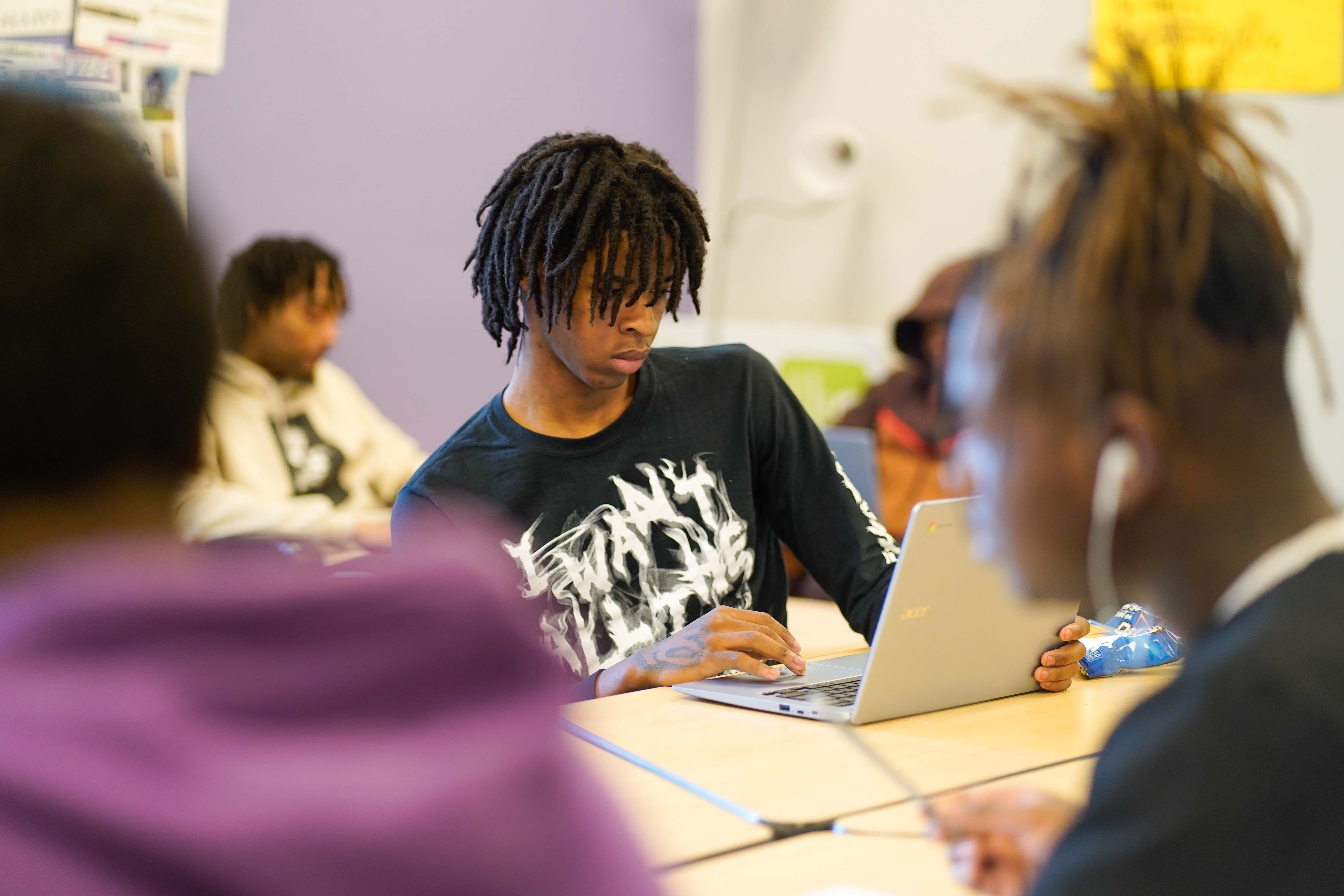Sign up for Chalkbeat Chicago’s free daily newsletter to keep up with the latest education news.
About 1 in 5 of roughly 2,300 out-of-school, out-of-work youth contacted to participate in a new reengagement program in Chicago took part during the first year, according to a new policy brief from the University of Chicago Crime Lab.
In Chicago, roughly 45,000 teens and young adults are disconnected from school and work. With $18 million from the state, the city launched Back to Our Future in May 2022 to reach 1,000 young people ages 14 to 21 in 15 neighborhoods on the South and West sides. Data indicates fewer than 500 have participated so far.
The findings released today illustrate how difficult it is to reconnect with these young people — often referred to as “opportunity youth” — once they’ve disengaged.
“If it was easy, somebody would have already done it,” said Jadine Chou, chief safety and security officer at Chicago Public Schools. “We knew going into this that it was going to be really hard.”
The Back to Our Future program is a partnership between the Crime Lab, Chicago Public Schools, and the three community organizations tasked with doing the on-the-ground reengagement: Breakthrough, UCAN, and Youth Advocate Programs (YAP), Inc.
Kim Smith, director of programs for the University of Chicago Crime Lab and Education Lab, said the low uptake is not entirely surprising. Back to Our Future is “a very ambitious program” to reach young people that have not been “served well by status quo services,” she said.
“This group of young people are not just going to kind of show up after a phone call,” Smith said. “There is an incredible need to tailor programming, to tailor services, even to tailor outreach strategies.”
The 12-week Back to Our Future program costs roughly $18,000 per young person to run. It includes 20 hours a week of mentoring, mental health services, job training, credit recovery to earn a CPS diploma or GED programming, and a stipend for youth participants.
However, the policy brief found many teens did not engage for the full 20 hours of programming each week. On average, participants attended nearly seven hours each week.
The policy brief analyzed referral and participation data, but was not a full evaluation of the program.
Chou said the district has a database of former students who left school before earning their diploma that they have used and shared with partner organizations in order to track down students. But often phone numbers and home addresses are no longer current or they have left Chicago. A lot of them have also aged out and would not be eligible for Back to Our Future.
“Once you do reach them, you have to really build trust,” Chou added.
She said the district is also learning a lot from the young people in Back to Our Future about how to prevent disconnection before it happens.
“They all have very important information, very important experiences that they are very happy to share,” she said, “which then I bring back to (colleagues at) CPS and say, ‘How can we work on this so that we essentially stem these young people from leaving us in the first place?’”
Chou highlighted school transfers as a signal for a student eventually dropping out.
“Once they do that transfer, that is so disruptive and destabilizing to their experience and to their sense of well-being because now they have to make new friends, now they have to navigate a new path to school,” she said. “And so, if possible, how do we support them in place?”
Smith said prevention is important so the numbers of out-of-school, out-of-work youth do not grow.
“At the point where a young person has not attended their school for 6, 12, 18 months, something has gone really wrong,” Smith said. “But it’s not ever too late, in our opinion, to try to re-engage young people and get them back on a good track.”
The brief only looked at data through May 2023. According to Chou, 346 young people are currently participating in Back to Our Future and outreach continues every day. She said 103 youth have successfully completed the program and of those, 32 earned their high school diplomas and 71 are re-enrolled in school.
“They would not have been able to do that without this program,” Chou said.
Becky Vevea is the bureau chief for Chalkbeat Chicago. Contact Becky at bvevea@chalkbeat.org.






